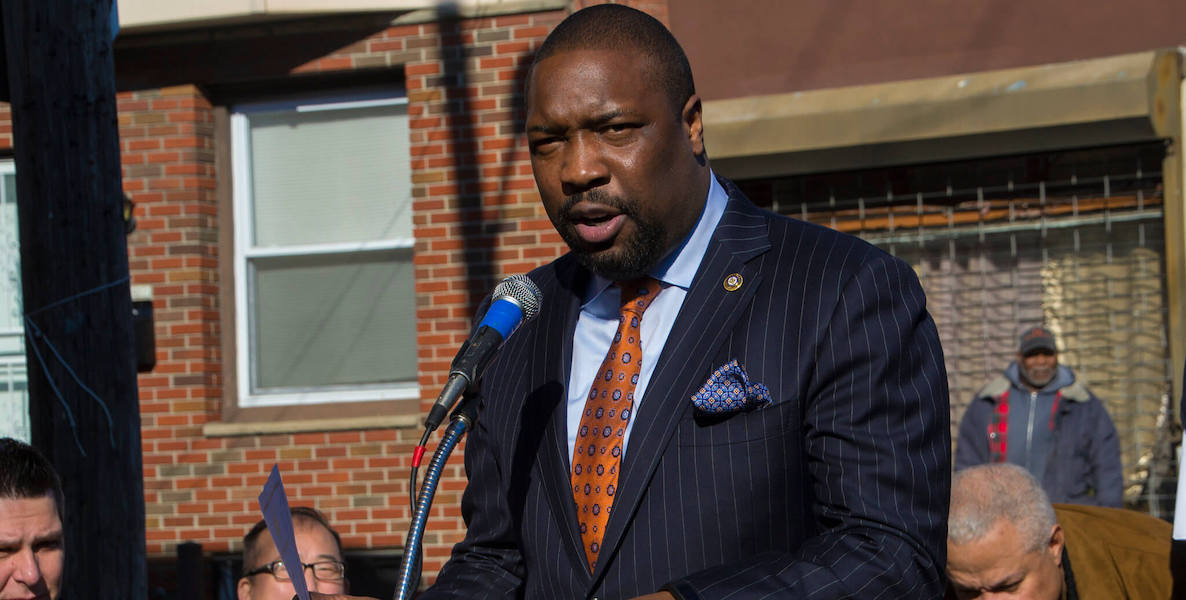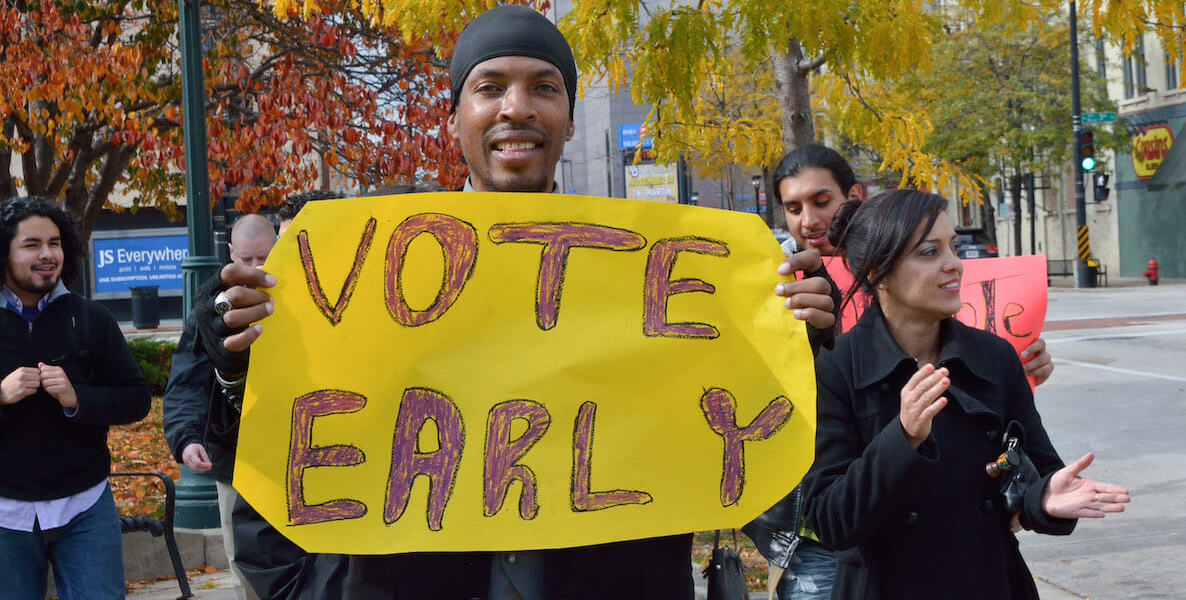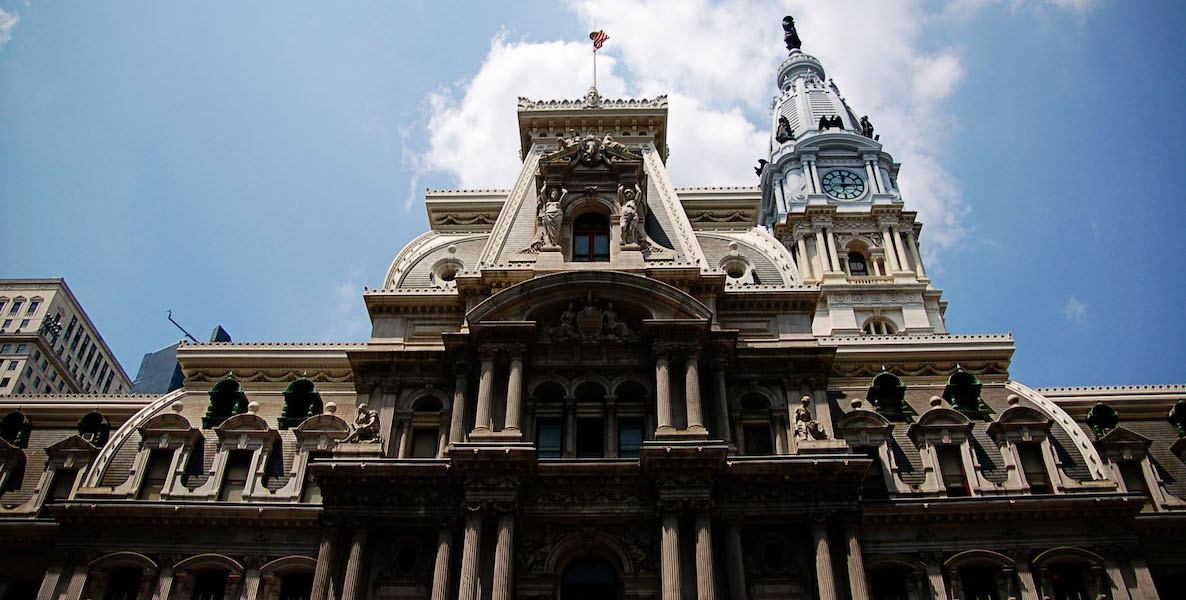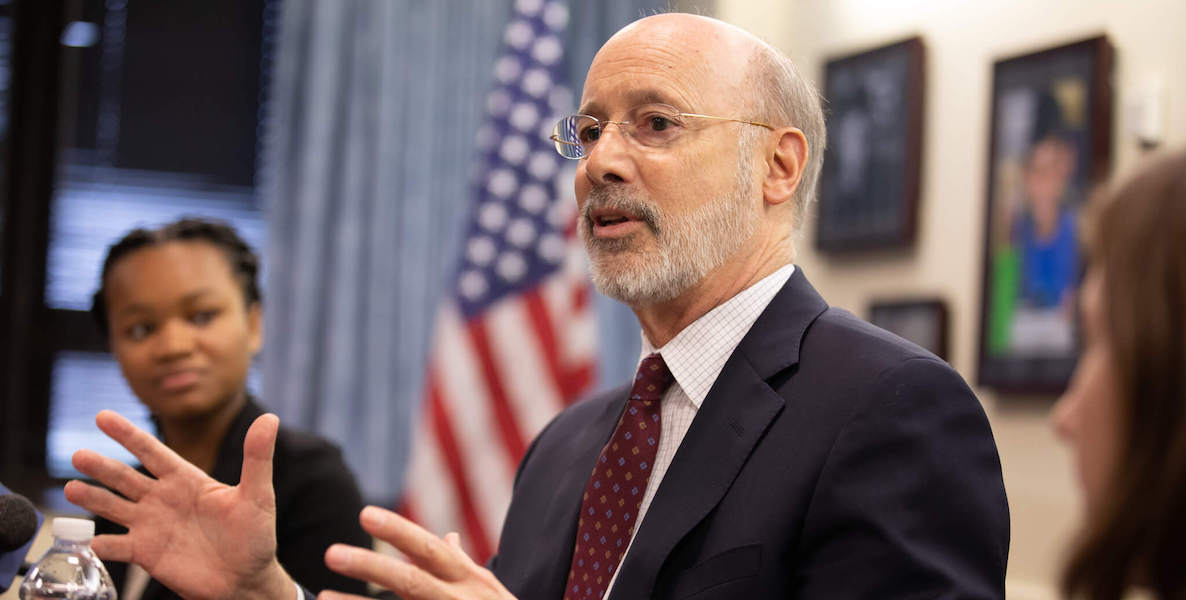![]() Governor Tom Wolf unveiled his budget proposal this week, with a few major priorities that Philadelphians should be paying attention to that will be a big deal for our ability to get the most out of state spending. Here are three areas to watch:
Governor Tom Wolf unveiled his budget proposal this week, with a few major priorities that Philadelphians should be paying attention to that will be a big deal for our ability to get the most out of state spending. Here are three areas to watch:
Good News for Philly Schools
The biggest news for Philadelphia was Wolf’s push for $1 billion to clean up toxic schools across Pennsylvania, funded through an expansion of the Redevelopment Assistance Capital Program.
A coalition of Philadelphia lawmakers has been pushing Wolf for more funding to remove lead and asbestos in city schools, which they estimate would cost around $175 million, according to the Inquirer’s report.
This is a no-brainer move, both in terms of doing right by the children, teachers, and staff who inhabit these buildings every day, and also as a state investment. The link between lead exposure and crime is pretty well-established, and the state could potentially save taxpayers a lot of money on policing and corrections costs down the line through large-scale lead remediation today.
Wolf would increase public school funding by $100 million, and early childhood education by $30 million. He also proposes extending full-day Kindergarten to every child in Pennsylvania as part of a package of other charter school reforms. Since new funding gets run through Pennsylvania’s school-funding formula, revised in the late aughts, this will be a better deal for Philadelphia.
More Money for Transportation
The second major proposal to watch is the plan to levy fees on the half of PA municipalities that solely rely on the state police for their local policing needs.
This proposal has been kicking around for years, and it hasn’t gone anywhere, mostly due to opposition from lawmakers representing rural and exurban areas. But as lawmakers have gotten increasingly agitated about Act 89 gas tax funds going to pay for state police instead of transportation projects as intended, it increasingly seems like something could happen.
![]() The state police budget has been eating more and more of the transportation money since Act 89 passed. This fee wouldn’t fully stop the bleeding, but it’s a good start.
The state police budget has been eating more and more of the transportation money since Act 89 passed. This fee wouldn’t fully stop the bleeding, but it’s a good start.
In addition to the revenue problems, the ability of municipalities to free-ride on the state police has other negative consequences too, like indirectly subsidizing exurban sprawl and effectively underwriting lots of tiny no-capacity local governments that probably shouldn’t exist.
Police departments are the largest piece of most municipal budgets, and the ability to get them for free means exurban townships are able to offer artificially low tax rates to attract residents and residential development.
If everyone had to pay for local policing costs, Philadelphia and other central cities would be at less of a disadvantage from a tax perspective.
A New Scholarship Program
Wolf also proposes diverting $200 million from a fund for horse-racing prizes to pay for a new college scholarship program. Cassie Miller at the Capital-Star explains how the new scholarship program would work:
In his proposal, Wolf announced a more than $200 million grant program for the Pennsylvania State System of Higher Education, funded on the backs of the state’s ailing horse racing industry.
![]() The “Nellie Bly” scholarship program will be available to in-state and out-of-state students, according to the administration. It will cover the full cost of tuition up to six years for full-time students.
The “Nellie Bly” scholarship program will be available to in-state and out-of-state students, according to the administration. It will cover the full cost of tuition up to six years for full-time students.
Scholarship recipients will be expected to stay in the commonwealth for time equal to the number of years they received the funds. If they leave early, the grant turns into a loan that recipients will be expected to repay.
About 25,000 low-to-middle income students are expected to benefit from the program. Administration officials said they anticipate the fund to be a recurring source of aid for students in need, prioritizing Pell Grant and PHEAA aid recipients first.
The creation of the Race Horse Development Trust Fund was tied to the casino expansion in the early 2000s, and defenders of the horse-prize fund insist they’re a package deal. But this is politics, and deals struck 20 years ago to pass a piece of legislation aren’t set in stone forever.
The casinos are well established now and there’s nothing wrong with elected officials who have come into office since then, who weren’t party to that original deal deciding they’d rather spend the $200 million on scholarships than horse-racing prizes.
Jon Geeting is the director of engagement at Philadelphia 3.0, a political action committee that supports efforts to reform and modernize City Hall. This is part of a series of articles running on both The Citizen and 3.0’s blog.
Photo courtesy Governor Tom Wolf / Flickr










